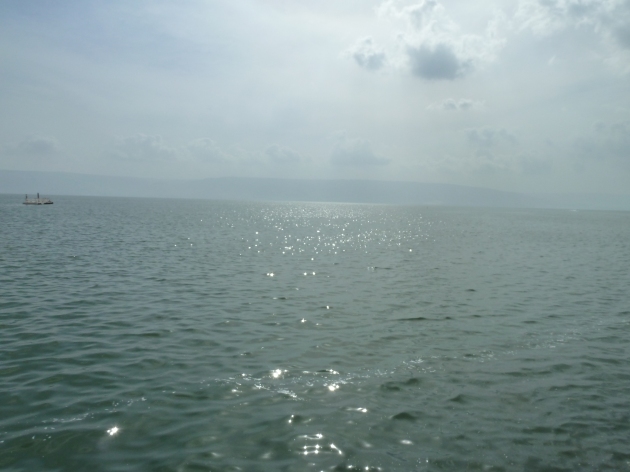It’s the first day of my break this morning and I’m returning to the Western world (northern Israel) for 3 days of coffee, showers and the wanton exposure of my lower arms.
I leave first thing. As I stand on the corner hitching a lift, I’m accompanied by a settler in civilian religious clothing. I notice that he hasn’t come out with a jacket or a bag, but he has felt the need to wear a large semi automatic slung over his shoulder. This isn’t an uncommon sight among (male) illegal settlers, but this must be a cumbersome accessory.
As I stand and wait, I look at him and wonder: Why does he have it? Out of fear? Hatred? And why the need for a semiautomatic? Would a discreet handgun not do? Perhaps he is planning to mow down groups of Palestinians, or perhaps he is compensating for something. Either way, a death machine over the shoulder doesn’t seem to be a hindrance when it comes to hitching a lift round here, as pretty soon a young secular Israeli man pulls over and opens the door for him with a friendly ‘Hi, how are you?’
I get a lift with an Israeli man who used to be a commander of a tank unit in the army. He explains to me, apparently without irony, that this area doesn’t belong to Israel, and that’s the reason why I’ll see so much army here. He gives me some chocolate and a business card, then drops me off at a junction which does indeed have it’s fair share of soldiers and armoured jeeps. There’s a huge menorah in the centre and Israeli flags everywhere.
I get talking to an Israeli woman from a nearby settlement, who is also hitching to Jerusalem on her way to see her father. She is young, attractive and kind. She says she likes living on a settlement, ‘apart from that,’ she says, as a car with two young Palestinian men drives past, leering at us.
We get a lift together, and in Jerusalem she accompanies me to the central bus station. She says that eventually she would like to raise a family in either a settlement or a moshav, because they are pleasant and safe for children, unlike cities, where parents don’t feel able to let their children play outside. I think of the family we met last week, in the village not far from this girl’s settlement, where the army walked into the family home and took three boys at gunpoint in the middle of the day.
This is what it’s all for, I think, this is why Fatima is awake at night not knowing where her children have been taken, and this is why tramuatized Palestinian children cling to their parents with fear, in order to allow people like this to raise their children in comfort and safety on confiscated land. We arrive at the bus station, she directs me to the nearest coffee outlet, and we say goodbye.
Driving through the West Bank and then later through Israel, I suddenly become aware of what I somehow never noticed before: the absurdity of two distinct nations living together in the same land, as neighbours, yet almost entirely segregated. Speaking different languages, with separate towns, separate public transport systems, and different names for the same places. In Israel, some Arab towns are barely signposted.
I catch another bus to Tiberias in the Galilee where I check into a hostel which has hot water and a whole room full of showers. I don’t really like Tiberias that much – it’s a tacky resort where bad music is piped through loudspeakers at every turn, but it’s a good base for exploring some of the nature nearby.
In the morning I get my coffee at my favourite cafe and sit watching the sun twinkling on the waves of the sea of Galilee, then hitch a lift to the south of the lake with a psychodrama therapist who has just moved here from Tel Aviv in search of nature and peace. The beach there turns out to be twice the price of the beaches in Tiberias, so I hitch a lift back again with an Israeli man who tells me about his travels around Europe and Asia. He has a child’s car seat in the back. When I ask him what he does for a living, he says he does ‘a security job.’ I know this means I can’t ask any more questions. I wonder if this means he works for Shabak, the Israeli intelligence service that interrogated the boys from Haris. He drops me off at a reasonably priced beach, where I open my book, block out the music, and relax.
The next day I catch a bus to the Golan and go for a hike in some beautiful nature. The colours of the flowers are amazing, and for a while I could hear nothing but the hum of bees, the sounds of birds and the occasional helicopter overhead. I notice that there are way more Israeli army and UN vehicles in this region, and I wonder if this is normal or whether their presence has increased since the civil war in Syria just across the border. I hitch a lift back to the Galilee with an affable reservist army major, whose gun rests at my feet the whole journey. Like many Israelis he is open, friendly and talkative. He is about to begin his reserve duty in the West Bank, where I hope I don’t bump into him.
